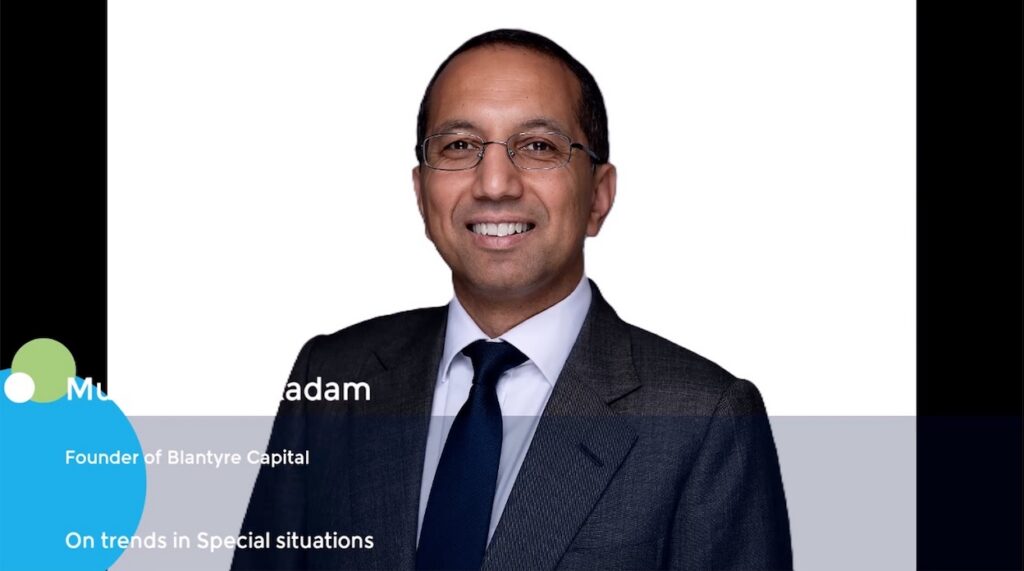Turnaround experts Metzger and Nacson arrested and refused bail in Thailand more than a decade after Continental Chemical restructuring – Legal Analysis
Let’s admit it. Sometimes we take the work of restructuring practitioners for granted. We trivialize the toxic environment they’re thrust into. We downplay the personal risks they take on. They’re strong individuals. They charge hefty fees. Now go and sort out the mess.
Perhaps we shouldn’t. Not many investors, lenders, or legal advisers face the prospect of ending up in a foreign prison thanks simply to taking on a chief restructuring officer role or director appointment as part of broader restructuring efforts. That’s the predicament longtime APAC sustainable energy and turnaround professional Kurt Metzger currently finds himself in — alongside fellow practitioner Michael Nacson – having been arrested and refused bail in Thailand almost fifteen years after he resigned from his role as non-executive director of Continental Petrochemical Thailand Corp (CPT), a subsidiary of Continental Chemical Corporation (CCC).
Metzger is in a desperate situation. He was arrested upon arrival in Bangkok to speak at a conference, with no idea he was wanted for interview. Despite cooperating with authorities, he now sleeps on a concrete floor in a crowded cell with 39 other inmates. He has lost 24 kilograms since his incarceration in late 2024. At the age of 65 (Nacson is 74), he has now spent more than 130-days in prison, with bail having been refused on multiple occasions – including as recently as last week by a Thai appellate court seemingly uninterested in the clear and obvious evidence pointing to his innocence.
Put simply, Metzger had no knowledge of the alleged customs transgressions by CPT which form the substance of the prosecution. Metzger never played a role in CPT’s management or operations – he was appointed by CCC’s receiver (Timothy James Reid of Ferrier Hodgson, now Baker Tilly) solely to report on the subsidiary’s financial position as part of a wider restructuring. To make matters worse, he wasn’t even a director at the time of the impugned transactions – he’d resigned months earlier. Yet all of that seems irrelevant – at least for now.
To be clear, the Thai authorities are perfectly within their rights to prosecute customs offences. They are also perfectly within their rights to treat all those accused equally, irrespective of their nationality or background.
What is of concern, however, is that the authorities don’t seem to understand the role played by restructuring professionals in such a scenario. Thankfully, some of Metzger’s former colleagues and creditor-representatives involved in the restructuring have rushed to provide evidence clarifying the terms of his appointment, the scope of his role, and the date of his resignation. But to date, the Thai authorities seem uninterested, and Metzger remains in prison awaiting an October trial.
In short, Metzger’s plight starkly illustrates the personal risks restructuring professionals take on when accepting creditor-led director/CRO appointments. Spare a thought for him and his peers when such an appointment is next proposed. He has lost his freedom, his livelihood, and quite possibly his home. And this commentator for one hopes that the authorities see the light and release him on bail before trial.
An emerging markets debacle
CCC and the group defaulted on their obligations in early 2009 (citing the global financial crisis) with around USD 359m owed to creditors; the majority of which (approx. 266m) was owed to lenders including Spinnaker Capital, Deutsche Bank, Barclays Capital, CLSA Mezzanine Management, Credit Suisse, Income Partners, Nordkap Bank, and Plexus Fund under a USD 250m senior secured term loan.
In May 2009, the secured lenders (through security agent Credit Suisse) appointed a receiver and manager over CCC in Singapore and its operating subsidiaries in Indonesia, Thailand and China. The receiver then appointed Metzger as director of several subsidiaries on 19 May 2009, including CPT, in an attempt to gain oversight of the financial operations of the businesses.
The businesses, however, continued to be controlled by its apparent owner (but not director) — Hadiran Sridjaja, an Indonesian businessman and Singapore resident otherwise known as MY Ling. Lenders, confident that a restructuring would result in higher recoveries than a forced liquidation, negotiated with Ling and representatives of ChemOne Group, an unrelated entity which also appeared to be controlled by MY Ling and used to promote his projects in Asia. Lenders also supported the company’s efforts to stay a winding-up application presented by unsecured lender RZB (Raiffeisen Bank International) and promote a scheme of arrangement.
While restructuring negotiations were continuing, Metzger played an important role in analysing the subsidiaries’ financial data and reporting the same to the receiver so that lenders could value the businesses and facilitate a broader restructuring. In particular, his role was to: (i) assist with communications between management and staff of the subsidiaries and the receiver; (ii) provide a level of visibility over the operations of the subsidiaries in light of suspicions of fraudulent activity; (iii) standardize financial reporting between the subsidiaries so that a clear undertaking of financial performance could be maintained; and (iv) develop a broad understanding of each business so that the receiver could step in and take a more active role in management if it ever proved necessary to do so thanks to suspicions of fraud or dishonesty. No such concerns ever arose, however, and at no time was Metzger involved in management decision-making or day-to-day operations; management broadly continued to act upon the directions of MY Ling.
By early October 2009, tensions had arisen over the failure to provide Metzger with director liability insurance, causing Metzger to resign from office by letter dated 5 October. Metzger requested that all actions be taken to remove him from office as soon as possible and by no later than 5 November 2009, noting that he would take no action as a director in the interim. Unfortunately for Metzger, however, it appears that CPT never processed his resignation; in fact the company never even registered his appointment as a director until one month after he resigned. As a result, Metzger appears as a director of the company on the Thai corporate registry from December 2009 to August 2010, despite having actually been appointed to that role in May 2009 and having resigned by November 2009 at the latest. Metzger, of course, couldn’t process the registrations himself — he had no power to act on CPT’s behalf after his resignation took effect.
Eventually, after Metzger’s involvement ceased, creditors approved (and the Singapore court sanctioned in November 2010) CCC’s first scheme of arrangement, pursuant to which lenders were to take a 50% haircut on their principal claims in return for a 10.47% stake in newly-incorporated Royal Chemie International, which was created by merging CCC with other chemical producer companies indirectly controlled by MY Ling. The remaining USD 125m owing under the term loan was then to be novated to Royal Chemie.
That scheme, however, was never implemented. Shortly before its longstop date, CCC proposed an alternative solution, offering to take out the yet-to-be novated USD 125m loan by the end of 2011 (six to seven years earlier than scheduled under the scheme) and acquire the lenders’ proposed 10% equity stake in Royal Chemie, provided that lenders consented to extending the scheme’s long stop date by four months to give it time to raise the necessary funds. After lenders refused the extension (concerned it was just a stalling tactic and refusing to budge on their demand for accrued legal fees to be covered), the scheme lapsed and CCC returned with a revised offer which combined both the previous scheme and provide CCC with the ability to takeout the debt for 90m. That scheme was once again approved by creditors and sanctioned by the court in late 2011, eventually becoming effective in February 2012.
That, of course, wasn’t the end of the matter. As Royal Chemie faced a cash crunch and then defaulted on its interest payment in January 2014, lenders rushed for the door, exiting at prices around 20-30 cents. That opened the door for a previously unknown fund — Phoenix Castle – to emerge holding nearly 40% of the novated facility, and enticed Sinar Mas Group investment vehicle Avalon Hills – funded by Argyle Street Management – to offer to purchase the entire USD 125m loan at a price of 40 cents. Shortly thereafter, Spinnaker Capital agreed to roll its position into a new facility with Sinar Mas and Avalon returned with a lower offer of 15 cents, so confident was it that it had the support of current holders.
Belated arrests
Metzger, of course, played no role in those later events and no role in respect of CPT whatsoever after October 2009. But that didn’t stop him getting arrested upon arrival in Bangkok in September 2024.
Earlier that year, the Thai customs authority had commenced proceedings against CPT for importing 239 shipments of various products without the correct import license. The alleged offences took place as far back as 2006 and, apparently, the company – without Metzger’s knowledge – had been discussing the offences with the authorities for some time (but had failed to settle them).
Alongside CPT, four individual directors were indicted — Metzger, Nacson, 89-year-old Korean national Dr Kyu Joon Chai, and long-term Indian national (and Thai resident) Sureet Singh. The prosecutor’s indictment also indicates CPT Directors Hendra Waskito and Stefano Poli have fled and are being sought by Thai police.
Under Thai law, each director could be held liable for any offences committed by the company. But according to Metzger’s camp, there are significant deficiencies in the prosecutor’s case. In their view: (i) the penalties which the authorities are seeking to impose were not even applicable at the time of the allegedly impugned shipments; they were enacted after the event; (ii) all customs duties and taxes payable in respect of the shipments have been paid; and (iii) as acknowledged in the indictment, of the 239 shipments which are alleged to have violated the regulations, 225 are now time-barred and cannot be prosecuted.
The case against Metzger is even weaker. As highlighted above, Metzger played no part in the day-to-day operations of the company, let alone in supply chain issues. Metzger signed no authorization or other documents in connection with the allegedly impugned shipments (something the company could confirm by producing the relevant shipping documents but has apparently refrained from doing so). And perhaps most importantly, Metzger was only in office for a period of six months; during which time none of the 14 impugned shipments were alleged to have been processed or received.
To Metzger’s representatives, the only reason Metzger has been dragged into this is because of the confusion created by the company’s failure to record his resignation with the Department of Business Development within the required 14 days of his resignation. That was something Metzger was unaware of (until arrested) and something he could not correct (given he no longer had authority to act for CPT). It was, however, something that could have been easily clarified if the authorities were willing to take note of the uncontroverted evidence provided by former colleagues and creditor representatives as to his limited role with the company, and – importantly – his appointment and resignation letters (copies of which have now been provided to the authorities). Sadly that hasn’t yet occurred.
No bail
Making things worse is the Thai court’s refusal to release Metzger in bail.
Why it has taken that stance is unclear. Metzger was initially granted bail when first arrested in September 2024. In the months that followed, he was nothing but cooperative; even flying back to Thailand (from his residence in Singapore) for multiple meetings with police and/or prosecutors. As his team points out, the only reason he hadn’t responded to orders requiring his attendance at interviews prior to September was that he was completely unaware of the requests (which had been published in the Government Gazette).
Things changed, however, when the decision was made to formally charge the directors on 26 November. Since that date, Metzger has had at least eight bail applications refused, notwithstanding his offers to surrender his passport and remain in Thailand. The first few of those applications were made as a group (with the other directors), but the last few have been made individually to highlight the different circumstances involving Metzger. Yet all have been refused — some as quickly as within two or three hours – suggesting that the authorities have little interest in considering Metzger’s individual position prior to the October hearing.
The Thai courts might be within their rights to take that approach, but it remains difficult to see how Metzger could be considered a flight risk.
Don’t count on support from co-defendants
Another difficulty apparently facing Metzger is a perceived lack of support from CPT and its ultimate owners.
CPT’s defence is apparently being driven by ChemOne. But according to Metzger’s team, neither the company nor its owners are going out of their way to assist Metzger’s defence. While former colleagues have been quick to provide evidence clarifying his limited role and the precise duration of appointment for the court, CPT has (to date) failed to even corroborate when he resigned from office or what his limited role involved. According to the team, it has also failed to disclose documentation (such as shipping records) which would presumably support Metzger’s case that he was not involved in the transactions (but potentially evidence that others were) and failed to coordinate a response from all accused highlighting that the 14 charges being prosecuted hardly warrant suggestions from the prosecution that the charges are so grave that bail should be refused.
Understandably, Metzger also feels aggrieved by the company’s failure to settle the dispute prior to charges being laid. In fairness though, there might be a reason why that didn’t occur – a reason ChemOne has not discussed with the other accused; and the company can only act upon the legal advice it is receiving. Ultimately, and unfortunately for Metzger, the unyielding support of CPT would have been helpful to prove his innocence (and morally sound) but can’t necessarily be expected.
A difficult role
In short, Metzger has been extremely hard done by. Common-sense dictates that as a restructuring professional he had no involvement in the alleged transgressions. Clear and uncontested evidence backs that up. And yet he’s been left to pay a high price for the actions of others; actions he had no control or even visibility over. Now he finds himself in a desperate situation, his physical and mental health declining while the Thai authorities refuse to consider the evidence pointing to his innocence.
No industry professional should be left in his position, facing the prospect of years in a foreign prison solely because he took a director appointment to assist creditors with a restructuring, not knowing that potentially dodgy practices undertaken by others at the company without his knowledge might come back to bite him. This commentator for one hopes that the Thai authorities take note of the precise nature of his role and release him on bail sooner rather than later.
Metzger’s plight also highlights the incredibly risky situations restructuring professionals often enter when supporting creditor interests. Too often we dismiss tales of practitioners being refused exit from a jurisdiction, being threatened with unwarranted indictments and/or personal litigation, or even having family or team members threatened with bodily harm, as no more than pub-stories from the wild, wild, west of restructuring. Sometimes they are much, much more serious.
Here’s hoping this one gets sorted urgently. And for those of you who’d like to support Kurt and his team as they fight to have him released from prison, his team would welcome any support — please contact [email protected] and they will let you know how you can help.
Prior to joining Debtwire, Ashley was a Partner at DLA Piper in Hong Kong with a practice focused on cross-border restructuring and insolvency matters. Ashley’s team advised lenders, funds, officeholders and debtors on a range of high-profile distressed scenarios across APAC (including in Australia, China, India, Indonesia, Malaysia, the Philippines, Singapore and Thailand) and worked closely with local counsel to coordinate related proceedings in the Caribbean, the UK, and the US. Ashley is a Fellow of INSOL International and is qualified in Australia, Hong Kong, and England & Wales.Any opinion, analysis or information provided in this article is not intended, nor should be construed, as legal advice, including, but not limited to, investment advice as defined by the Investment Company Act of 1940. Debtwire does not provide any legal advice and subscribers should consult with their own legal counsel for matters requiring legal advice.










